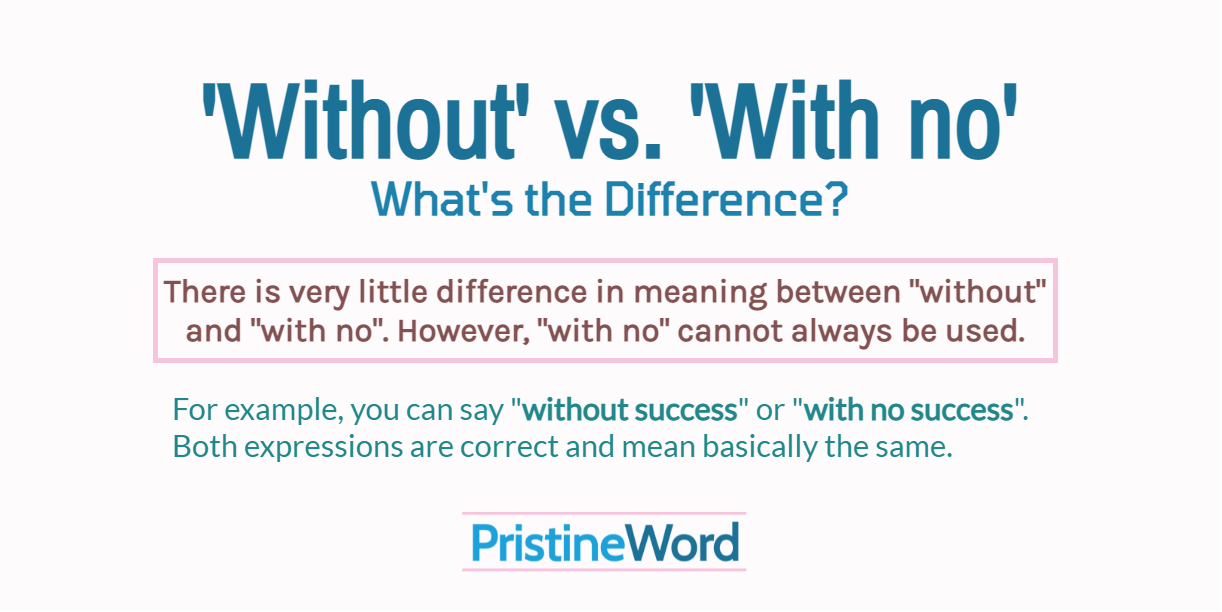There is very little difference in meaning between without and with no. For example, you can say "without success" or "with no success". Both expressions are correct and mean basically the same.
There is very little difference in meaning between without and with no in English. For example, you can say "without success" or "with no success". Both expressions are correct and mean basically the same.
In most cases, without is probably the best choice and the more commonly used in English. However, there are a number of considerations to bear in mind:
- Differences in usage. Although the use of without is more common than with no, the "no + noun" combination is pretty common in English.
- Differences in meaning. As you can see down below, there are subtle differences in meaning between these expressions.
- "With no" cannot always be used. For example, you cannot use this term before a determiner (a, an, some, much, etc.).
Contents
1. Differences in Usage
Generally speaking, the use of without is more common than with no. For example, English speakers tend to say:
- without success (far more commonly used than with no success)
- without haste (instead of with no haste)
- without prejudice (more common than with no prejudice)
Additionally, English speakers tend to avoid with no when is followed by a gerund (a verb ending in "ing" that works as a noun). For example, we say:
- without mentioning (instead of with no mentioning)
- without caring (instead of with no caring)
- without thinking (far more common than with no thinking)
Some expressions with the "no + noun" formulation are pretty common in English. For example, we often say:
- with no ice
- with no added sugar
- with no added salt
- with no effort
- with no doubt
- with no possibility
- with no compromise
- with no end in sight
- with no negative comments
2. Differences in Meaning
There are subtle differences in meaning between without and with no. With no is slightly more assertive or emphatic than without because "no" (followed by a noun) makes the negative stronger. Overall, however, the difference is pretty subtle.
3. 'With no' cannot always be used
When we use "no" before a noun, "no" means "not a" or "not any". Therefore, you cannot use with no before a determiner (a, an, the, this, that, these, those, my, your, many, much, etc.)
This sentence is incorrect:
You can learn with no a teacher.
These sentences are correct:
- You can learn without a teacher.
- You can learn with no teacher.
4. Examples
- Do not go hiking without choosing the right shoes and knowing your route.
- This region is experiencing a long drought episode with no end in sight.
- Your study habits are not effective. Do not forget that memorizing without understanding is pointless.
- I tried to make a fortune by investing in the stock market without success.
- I love nuts with no added sugar. They help you reduce inflammation and enhance mental clarity.
- You will not succeed in running a delivering food business without hard work.
- The school is stuck with no teacher as many students return to in-person learning.
- The software errors of our system should be fixed without delay.
- Is it legal to work without a contract?
- I love eating leafy green vegetables (by the way, with no added salt).
- It goes without saying that our countries must cooperate more closely.

